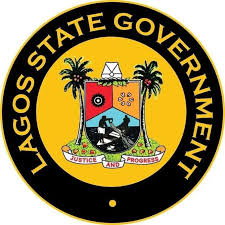The Lagos State Government has officially unveiled the Lagos Identity Project, a digital house numbering system that aims to revolutionise property identification.
This project will also enhance public service delivery and boost urban planning across the state. It aims to tackle long-standing challenges such as tax evasion, untraceable addresses, and rental fraud—issues that have hindered efficient governance and service delivery in Lagos.
Dr. Olajide Babajide, Special Adviser to Governor Babajide Sanwo-Olu on Enterprise Geographic Information System (e-GIS), is leading the initiative, which will commence on July 1, 2025, in Ikeja Local Government, the pilot location with about 23,000 properties.
The new system will significantly improve emergency response times, postal deliveries, security, utility management, and the accuracy of urban planning.
At the heart of the Lagos Identity Project are digital address plates embedded with QR codes and colour codes unique to each local government area. When users scan these QR codes with smart digital devices, they instantly receive verified property information, including ownership details, location coordinates, and service provider data.
Read Also: Infrastructure enhancement: Lagos raises N157billion from capital market
Dr. Babajide explained that the project resulted from extensive collaboration with technology partners such as Streamline Technologies and Interspatial. Interspatial conducted two years of aerial mapping across Lagos to provide precise geospatial data.
The initiative builds on Lagos State’s previous digital infrastructure milestones. These include the establishment of a state data centre during President Bola Tinubu’s tenure as governor—a development that earned Lagos international recognition for digital governance from institutions such as the World Bank.
After launching in Ikeja Local Government, the state government will gradually expand the rollout to cover all other local governments and Local Council Development Areas (LCDAs).
The government has urged property owners—especially those with subdivided properties—to participate in the re-identification process to ensure comprehensive coverage and accurate data.
Beyond improving service delivery, the digital house numbering system will help Lagos State enhance its internally generated revenue. It will achieve this by identifying undocumented properties and bringing them into the tax system, enabling more efficient property valuation.
The Digital Identity Project supports Lagos State’s broader vision of becoming a smart city. By enabling better urban management and safer communities through digitisation, the state is transforming into a digitally empowered megacity that sets benchmarks other Nigerian states can follow.
Watch: MARKETING EDGE Interview With LASG Commissioner for Info & Strategy






Comment
No comments found.